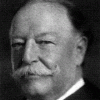That conception is written large over the history of the nineteenth century, both in England and in America. The doctrine which it inherited was that property was held by an absolute right on an individual basis, and to this fundamental it added another, which can be traced in principle far back into history, but which grew to its full stature only after the rise of capitalist industry, that societies act both unfairly and unwisely when they limit opportunities of economic enterprise. Hence every attempt to impose obligations as a condition of the tenure of property or of the exercise of economic activity has been met by uncompromising resistance. The story of the struggle between humanitarian sentiment and the theory of property transmitted from the eighteenth century is familiar. No one has forgotten the opposition offered in the name of the rights of property to factory legislation, to housing reform, to interference with the adulteration of goods, even to the compulsory sanitation of private houses. “May I not do what I like with my own?” was the answer to the proposal to require a minimum standard of safety and sanitation from the owners of mills and houses.
R. H. Tawney (1880-1962) English writer, economist, historian, social critic [Richard Henry Tawney]
The Acquisitive Century, ch. 3 “The Acquisitive Society” (1920)
(Source)
Quotations about:
libertarianism
Note not all quotations have been tagged, so Search may find additional quotes on this topic.
By fixing men’s minds, not upon the discharge of social obligations, which restricts their energy, because it defines the goal to which it should be directed, but upon the exercise of the right to pursue their own self-interest, it offers unlimited scope for the acquisition of riches, and therefore gives free play to one of the most powerful of human instincts. To the strong it promises unfettered freedom for the exercise of their strength; to the weak the hope that they too one day may be strong. Before the eyes of both it suspends a golden prize, which not all can attain, but for which each may strive, the enchanting vision of infinite expansion. It assures men that there are no ends other than their ends, no law other than their desires, no limit other than that which they think advisable. Thus it makes the individual the center of his own universe, and dissolves moral principles into a choice of expediences.
R. H. Tawney (1880-1962) English writer, economist, historian, social critic [Richard Henry Tawney]
The Acquisitive Century, ch. 3 “The Acquisitive Society” (1920)
(Source)
We have passed beyond the time of what they call the laisser-faire school which believes that the Government ought to do nothing but run a police force.
William Howard Taft (1857-1930) US President (1909-13) and Chief Justice (1921-1930)
Speech, Milwaukee (17 Sep 1909)
(Source)
I really don’t know what you do about the “taxes are theft” crowd, except possibly enter a gambling pool regarding just how long after their no-tax utopia comes true that their generally white, generally entitled, generally soft and pudgy asses are turned into thin strips of Objectivist Jerky by the sort of pitiless sociopath who is actually prepped and ready to live in the world that logically follows these people’s fondest desires. Sorry, guys. I know you all thought you were going to be one of those paying a nickel for your cigarettes in Galt Gulch. That’ll be a fine last thought for you as the starving remnants of the society of takers closes in with their flensing tools.
John Scalzi (b. 1969) American writer
“Tax Frenzies and How to Hose Them Down,” Whatever blog (26 Sep 2010)
(Source)
“At this festive season of the year, Mr. Scrooge,” said the gentleman, taking up a pen, “it is more than usually desirable that we should make some slight provision for the Poor and Destitute, who suffer greatly at the present time. Many thousands are in want of common necessaries; hundreds of thousands are in want of common comforts, sir.”
“Are there no prisons?” asked Scrooge.
“Plenty of prisons,” said the gentleman, laying down the pen again.
“And the Union workhouses?” demanded Scrooge. “Are they still in operation?”
“They are. Still,” returned the gentleman, “I wish I could say they were not.”
“The Treadmill and the Poor Law are in full vigour, then?” said Scrooge.
“Both very busy, sir.”
“Oh! I was afraid, from what you said at first, that something had occurred to stop them in their useful course,” said Scrooge. “I’m very glad to hear it.”
“Under the impression that they scarcely furnish Christian cheer of mind or body to the multitude,” returned the gentleman, “a few of us are endeavouring to raise a fund to buy the Poor some meat and drink and means of warmth. We choose this time, because it is a time, of all others, when Want is keenly felt, and Abundance rejoices. What shall I put you down for?”
“Nothing!” Scrooge replied.
“You wish to be anonymous?”
“I wish to be left alone,” said Scrooge. “Since you ask me what I wish, gentlemen, that is my answer. I don’t make merry myself at Christmas and I can’t afford to make idle people merry. I help to support the establishments I have mentioned — they cost enough; and those who are badly off must go there.”
“Many can’t go there; and many would rather die.”
“If they would rather die,” said Scrooge, “they had better do it, and decrease the surplus population. Besides — excuse me — I don’t know that.”
“But you might know it,” observed the gentleman.
“It’s not my business,” Scrooge returned. “It’s enough for a man to understand his own business, and not to interfere with other people’s. Mine occupies me constantly. Good afternoon, gentlemen!”
Charles Dickens (1812-1870) English writer and social critic
A Christmas Carol, Stave 1 “Marley’s Ghost” (1843)
(Source)





